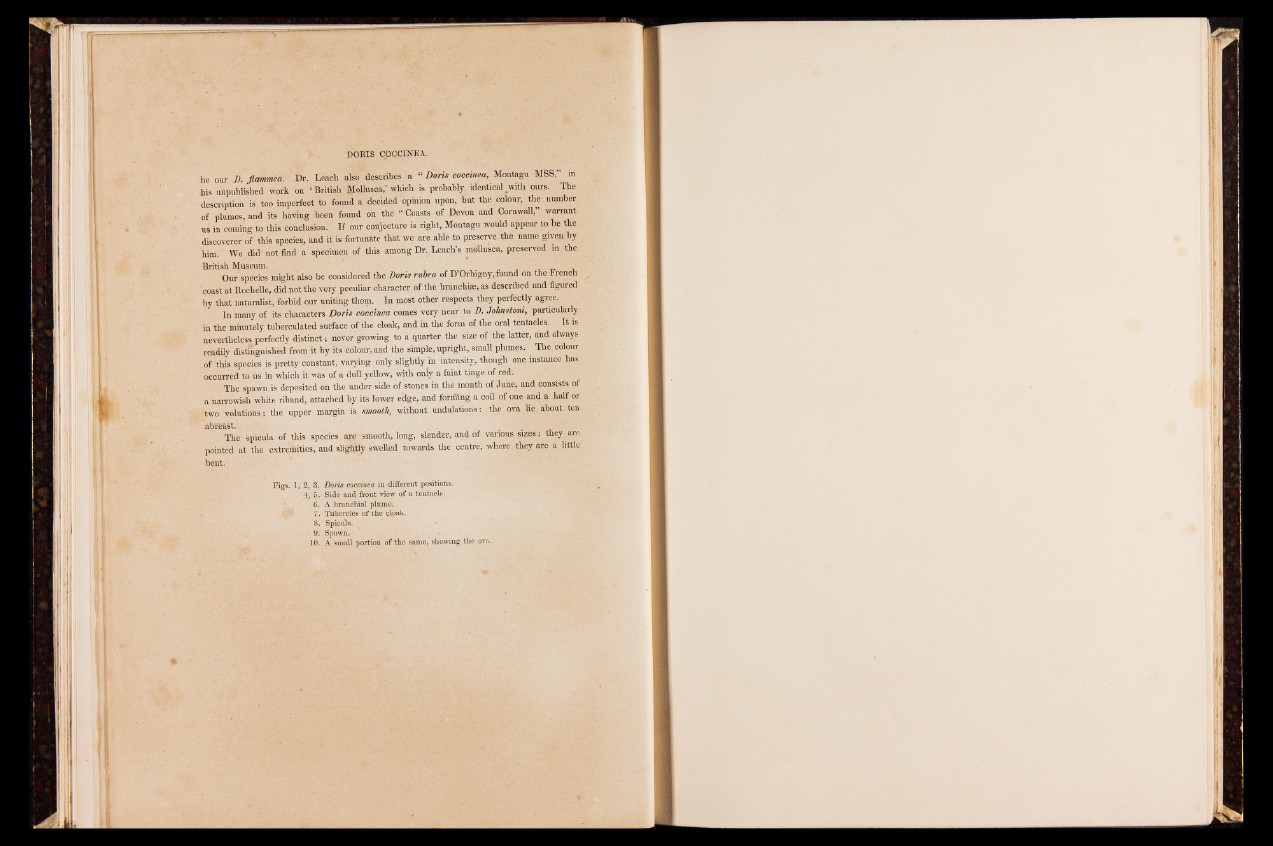
DORIS COCCINEA.
be our D. flammea. Dr. Leach also describes a “ Doris coccinea, Montagu MSS,” in
his unpublished work on 'British Mollusca/ which is probably identical with ours. The
description is too imperfect to found a decided opinion upon, but the colour, the number
of plumes, and its having been found on the “ Coasts of Devon and Cornwall," warrant
ns in coming to this conclusion. If our conjecture is right, Montagu would appear to be the
discoverer of this species, and it is fortunate that we are able to preserve the name given by
him. We did' not find a specimen of this among Dr. Leach’s mollusca, preserved in the
British Museum. , ,
Our species might also be considered the Doris rubra of D’Orbigny, found on the French
coast at Rochelle, did not the very peculiar character of the branchiae, as described and figured
by that naturalist, forbid our uniting them. In most other respects they perfectly agree.
In many of its characters Doris coccinea comes very near to D. Johnstoni, particularly
in the minutely tuberculated surface of the cloak, and in the form of the oral tentacles. It is
nevertheless perfectly distinct; never growing to a quarter the size of the latter, and always
readily distinguished from it by its colour, and the simple, upright, small plumes. The colour
of this species is pretty constant, varying only slightly in intensity, though one instance has
occurred to us in which it was of a dull yellow, with only a faint tinge of red.
The spawn is deposited on the under side of stones in the month of June, and consists of
a narrowish white riband, attached by its lower edge, and forhfing a coil of one and a half or
tw'O volutions; the upper margin is smooth, without undulations; the ova he about ten
abreast.
The spicula of this species are smooth, long, slender, and of various sizes; they are
pointed at the extremities, and slightly swelled towards the centre, where they are a little
bent.
Figs. 1, 2, 3. Doris coccinea in different positions.
4 /5 . Side and front view of a tentacle.
6. A branchial plume.
7. Tubercles of the gloaik.
8. Spicula.
9. Spawn.
10. A small portion of the same, showing the ova..